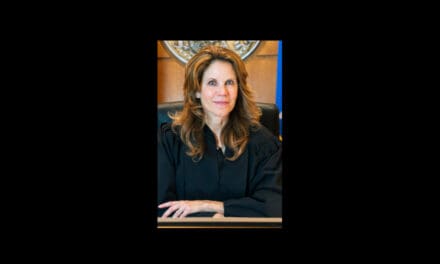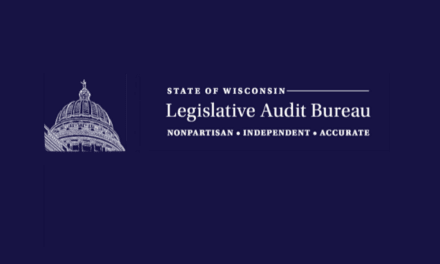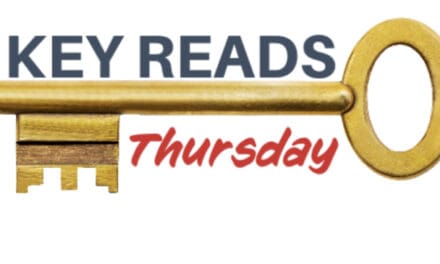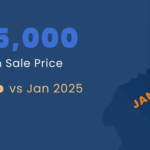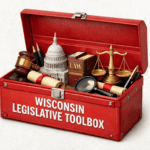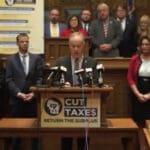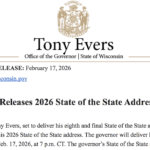We hope you had a wonderful weekend, but now it’s back at the grind. Let’s get right to today’s Key Reads.
Because voters head to the polls tomorrow, we’re a bit heavy with political and election news today.
Tomorrow is the Spring General Election Day. While the Presidential Preference contests are unremarkable at this point there is still a lot on the ballot. In addition to a slew of local races and school spending requests there are two significant amendments to the Wisconsin Constitution that address the Zuckerbucks meddling into election administration.
Ballot Breakdown: What’s on your ballot for Wisconsin’s April 2 primary | WISC
Wisconsin voters statewide will also see two constitutional questions on their ballots related to how Wisconsin elections are run.
Question one asks voters if local governments should be prohibited from using private funding to cover election expenses. It reads:
“QUESTION 1: Use of private funds in election administration. Shall section 7 (1) of article III of the constitution be created to provide that private donations and grants may not be applied for, accepted, expended, or used in connection with the conduct of any primary, election, or referendum.”
Question two asks voters if only legally designated election officials should be allowed to work on elections. It reads:
“QUESTION 2: Election officials. Shall section 7 (2) of article III of the constitution be created to provide that only election officials designated by law may perform tasks in the conduct of primaries, elections, and referendums?”
The questions were added to the ballot in response to the 2020 election when several Wisconsin municipalities accepted private funding to help cover the cost of running elections and pay for things like masks, sanitization and social distancing during the pandemic.
Generally, conservatives favor voting ‘yes’ on the amendments, arguing elections should be run and paid for exclusively by the government. Liberals tend to advocate for voting ‘no’ on the questions, saying the wording is too broad and could lead to restricted voting access.
The State Democratic Party is flush with money, mostly from out-of-state donors. They are spending some of their largesse on local school board races. To say state Republicans are outgunned in the fundraising game would be akin to saying The Generals are not expected to be competitive in their matchups with the Globetrotters.
Democrats spend over $200,000 on Wisconsin school board races, overtaking Republicans | Milwaukee Journal Sentinel
While school board positions are technically nonpartisan, candidates are increasingly aligning with political parties who can offer voter lists, canvassers, networking and glossy mailers. For the parties, school board elections are an opportunity to connect with voters on emotional local issues, drive voter turnout and nurture candidates who could eventually climb to higher political offices.
The state Democratic party invested about $230,000 in school board candidates this year, according to Joe Oslund, communications director for the Democratic Party of Wisconsin. The spending is detailed in campaign finance reports filedlast week.
Finance reports for the state Republican party don’t show any contributions to school board candidates. The party did send funds to its county parties, some of which supported local school board candidates, though not at the same scale as the Democrats.
The state Republican party has vastly trailed the Democrats in fundraising for all purposes this year, bringing in about $400,000 this year compared to the Democrats‘ nearly $5.4 million.
Republicans made bigger plays for school board seats in 2022, claiming victory in “flipping” school boards across the state to conservative majorities. This spring, Republicans may not be spending as much, but they are still stamping the party’s approval on candidates statewide and promoting their campaigns. Officials with the Republican Party of Wisconsin didn’t respond to interview requests from the Journal Sentinel about school board races.
In a Friday veto frenzy, Governor Evers has again rejected legislative attempts to ensure that Wisconsin’s wolf population could be managed by a hunting season.
Evers and his administrators at the DNR continue to fail Wisconsin landowners and farmers on this issue. They also may be further jeopardizing Wisconsin deer hunting in the Northwoods. We will continue to follow this issue as the results of this policy snowball.
Evers vetoes bill seeking statewide population goal for wolves | WPR
In October, the Republican-controlled Senate voted 22-10 to pass the bill along party lines. The Assembly passed the legislation on a voice vote in January.
In a statement, Stafsholt said the bill merely requires the agency to include a numeric goal in its wolf management plan without altering the DNR’s authority.“If we are not managing to a specific population goal number, the DNR has essentially allowed there to be no trigger to reduce the population, despite the many problems caused by having too many wolves on our landscape, such as a depletion of our deer population and loss of cattle to farmers,” Stafsholt said.
The Natural Resources Board approved the DNR’s revised wolf management plan last fall with minor changes. The hotly debated plan drew support from conservation and environmental groups, but hunting and farm groups criticized the plan for its lack of a statewide goal.
That’s a wrap for today. As many in the state brace for another Spring storm this week, we remain vigilant, prepared to bring you the Key Reads each and every weekday.
See you again, tomorrow.


